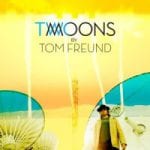The Next Generation of Canadian Roots Musicians
Last week, the usual complaints about the Grammys appeared the day after the show. The awards went to big sellers and performances featured strange combinations of old-timers and new stars, leading purists to feel that the music business is continuing to forsake art for profit. Nostalgia for the ‘old days’, when music was good, drives the grumbling against that geared towards teenagers, usually considered the primary target demographic of the big labels.
And I agree, to some extent. Eminem’s anger is forced and insincere; Justin Bieber lacks anything interesting besides a mildly comical hair flick. Most songs on the grocery store soundtrack are made up of canned riffs and annoying vocoder effects. But there are a few who are proving that the craft of creating new, interesting music is alive and well.
Now that I am a music prof in Toronto, the offspring of some of the great Canadian musicians I grew up listening to are attending university and taking my classes. At some point in my time at York University, Jim Cuddy’s (of Blue Rodeo) son Devin came through the music program. At Ryerson, I had Sam Cash, son of L’Etranger’s and the Cash Brothers’ Andrew Cash, in my class as well as Jimmy Hayes, a member of Harlan Pepper (whose bass player is Junkhouse’s Tom Wilson’s son). These students turned out to be focal points in the class, around which discussion circled, as they expressed their opinions on and experiences of the contemporary industry. They also wrote papers based on these experiences and played for their peers in the final class, much to the delight of the swooning girls.
The other night, I went to see Devin Cuddy play at the Cameron House. I don’t know if he has been doing regular gigs, but since I saw his name appear in the weekly listings, I thought I would see what he was all about. Cuddy introduced his set as a night of blues piano, and he proceeded to resurrect the classic tunes of Lazy Lester, Lonnie Johnson, Gram Parsons, and The Carter Family, among others. He augmented these with some originals, taking a short break to pass the hat and visit with other York students and family in the audience. I was seated close to the piano and watched him play; his technique is solid and he improvises with an extensive catalogue of blues riffs and no trace of inhibition. Quite something for a player in his early 20s. He is a capable singer, adjusting easily to the variety of styles he adopted, and it is clear that his musical vocabulary is informed by the environment of his youth.
I saw Harlan Pepper play at Hugh’s Room in the fall and was astounded not only by their own set, but at their ability to keep up with (and enhance) Wilson’s band Lee Harvey Osmond for the last section of the show. HP’s sound is easy and light-hearted, but there’s nothing light about their talent. Only in their early university years, it is clear that these guys do nothing but practice in their spare time. On songs like “Great Lakes”, bouncing banjo picking is complemented by winding guitar slides in an overall driving-through-the-countryside aesthetic that has come to define the southern Ontario roots sound.
Sam Cash’s songwriting is perhaps his greatest asset, although as I write that phrase, I immediately want to change my mind to his voice. Or guitar playing. But Cash uses sweet metaphors and verbose lyrics that are relieved by his unique phrasing and sparse accompaniment. “Smile” is a great example of this. When he introduced himself to me in class, I told him I had enjoyed seeing him play the year before at a house party. He shrugged my compliment off, embarrassed, saying his playing was now “way better” than it was then. And it is—he is clearly someone who also spends all his free time practicing and pushing his performance career forward.
This new generation of musicians gives me hope. They are industry-savvy, constructing websites, filming videos, finding gigs, self-distributing and –promoting to anyone who will help them or listen to them. But they are also very aware of what it takes to get anywhere: hard work and practice. They know the great songs of their predecessors, and they have compiled a vast array of influences into a style that they are comfortable and confident in. They know to work hard for a gig, change smoothly between songs, and engage in smart onstage banter. I don’t think all hope is lost with new performers like this on the horizon.




